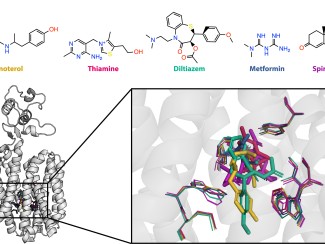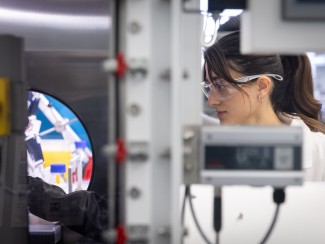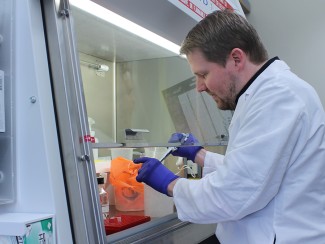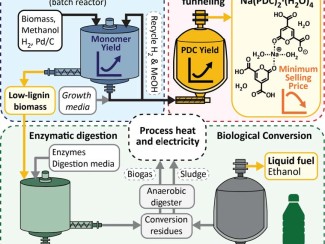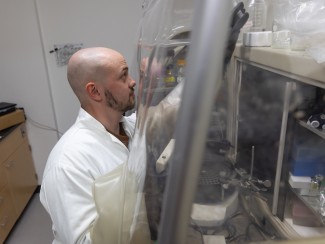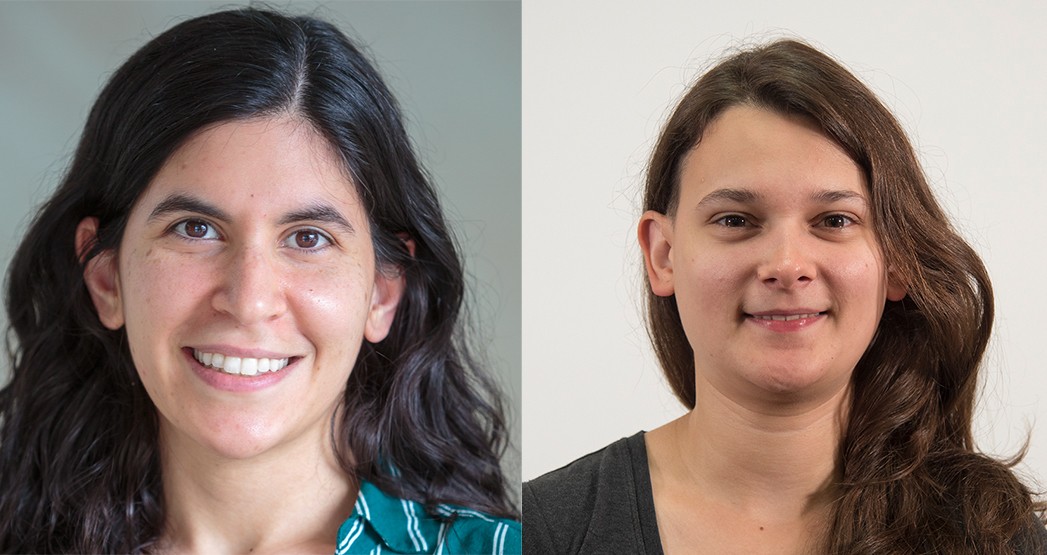
Great Lakes Bioenergy Research Center researchers Linda Horianopoulos and Rose Lizzo are the winners of the 2024 Service and Outreach Awards in recognition of their dedication to sharing the wonder and excitement of the center’s work and mission.
The award, established in 2019, honors those who demonstrate a spirit of generosity in sharing science with the public. Winners may coordinate outreach programming, dedicate time to support services, or share expertise with public audiences.
Horianopoulos is a postdoctoral researcher in the Hittinger lab at the University of Wisconsin–Madison. Her research focuses on identifying which yeast species are most efficient at consuming glucose and producing biofuels.
Horianopoulos is an annual participant in the Evolution’s Society’s Darwin Day along with many others from the Hittinger lab. Madison’s Science on the Square hosted Horianopoulos and the institute's Fermentation in a Bag experiment where curious eyes could see how microbes convert different sugars into biofuels.
Horianopoulos is also dedicated to building community within the institute. As an active member of the Equity, Diversity, and Community Committee, Horianopoulos leads a journal club where researchers regularly review journal articles that focus on issues of equity, representation, and accessibility.
“I really strongly believe that to get to a place of equity and inclusion, you need to have community,” said Horianopoulos. “It’s just impossible to have meaningful conversations if you don’t already have a sense of community presence.”
Lizzo is a graduate student in the Kiley lab at UW–Madison, where she studies a gene regulator responsible for supplying a compound to a biofuel-producing pathway within Zymomonas mobilis, a microbe pivotal for the industrial production of biofuels.
She said one of the most rewarding elements of her work is communicating about science to the public. One of her first outreach events as part of the GLBRC was at the Eken Park Festival in Madison last summer. Lizzo was the sole representative of the university at the event and led visitors through both a bacteria and microplastics activity.
“I think it’s a little bit of a duty to be involved in the university and let people know what’s going on,” said Lizzo. “It’s just cool seeing them so excited about something that I’m really excited about.”
Both women have consistently sought out outreach opportunities throughout their time in academia.
Horianopoulos began science outreach as an undergraduate attending elementary school science fairs with the chemistry club, and much of her current outreach still centers on young audiences.
“I have a specific memory of showing kids fluorescent microscopy. I showed them this image, and this kid was just like, ‘Wow, that’s amazing.’ And it was a real image from my PhD thesis,” Horianopoulos said. “Their reactions are just so honest and interested that it actually makes you feel good too because you’re doing science day-in and day-out … and this gives you a fresh set of eyes.”
Lizzo is a regular presence at the Wisconsin Energy Institute's Science Expeditions and brings the institute's research to the public.
“I really like demystifying science for people. When it comes to bacteria, people think of them as typically bad or disease causing,” said Lizzo. “But they’re in our gut, and they help us everyday. We need them, and the majority actually aren’t going to make you sick.”
To Horianopoulos, outreach can be a way to make the process of science transparent and bolster trust in the institution.
“I think it’s really important to humanize science as well. Science is done by humans,” Horianopoulos said. “And especially when you see disinformation around science and public mistrust of science, I think meeting the people who do science can help with that.”

